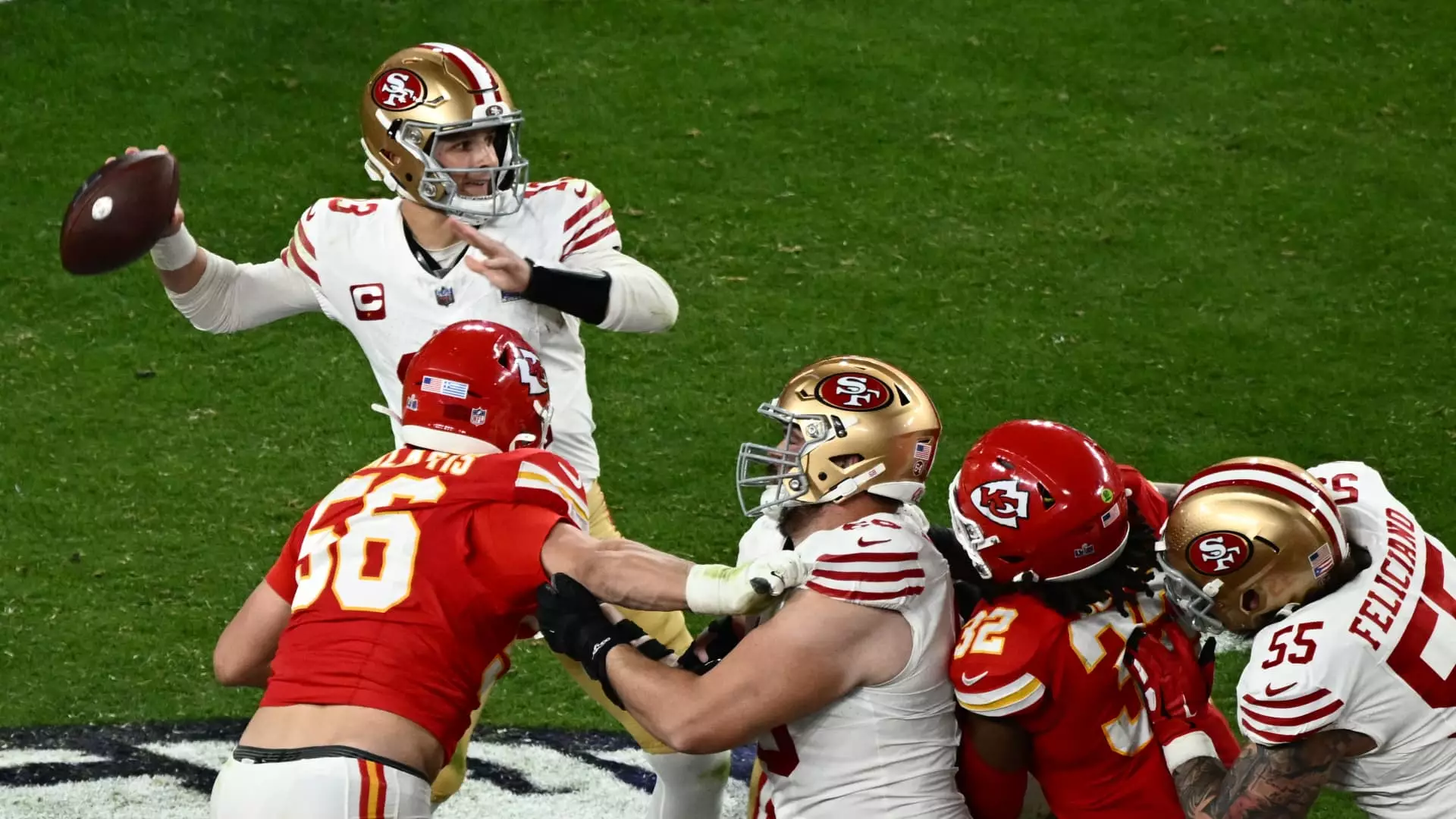Brock Purdy’s journey from being the last pick in the 2022 NFL Draft to leading the San Francisco 49ers to the Super Bowl exemplifies a striking flaw within scouting methodologies in the National Football League. As the 262nd overall selection, Purdy’s ascent highlights the shortcomings of conventional player evaluation techniques. Talent scouts and evaluators have often relied on outdated metrics that overlook essential attributes, which in Purdy’s case, led to a significant oversight. His success raises fundamental questions about the efficacy of existing scouting systems and urges a thorough reevaluation of how player potential is assessed.
Al Guido, the president of the 49ers, is keenly aware of the limitations of traditional scouting practices. His vision includes leveraging artificial intelligence to refine talent assessment, not only in American football but also in soccer—a sport inherently more complex due to its global nature. According to Guido, soccer encompasses numerous leagues with varying levels of competitiveness, making it particularly challenging to identify and evaluate potential talent. The 49ers organization aims to integrate AI into their scouting processes to enhance their ability to discern valuable player traits that current systems may miss. This critical modern approach stands to revolutionize how athletes are identified and nurtured from their formative years into professional excellence.
The blending of traditional scouting with advanced analytics has become a cornerstone of the 49ers’ evaluation philosophy. Teams must now possess a balanced framework where instinctive evaluations are bolstered by data-driven insights. Guido describes an evolution in the way teams understand player value, suggesting that an integrative approach combining human intuition with robust statistical analysis can yield a more holistic view of an athlete’s potential. Through the use of advanced statistics and AI, the 49ers aim to create a rigorous evaluation process that minimizes blind spots and improves decision-making when scouting new talent.
As Brock Purdy enters discussions for a contract extension, the implications of these pioneering scouting techniques extend beyond mere player evaluation. The 49ers’ forward-thinking approach not only impacts their immediate roster but also sets a precedent for how teams across the league—and even in international soccer—recruit and develop talent. As more organizations embrace AI and analytics, the scrutiny over traditional scouting methods will inevitably intensify, prompting a shift in how potential players are recognized based on a more comprehensive understanding of their capabilities.
The integration of technology in sports scouting may well redefine the landscape of player recruitment. With the 49ers leading by example, there is a growing consensus that traditional methods are in dire need of innovation. By embracing AI and marrying it with foundational scouting principles, teams can approach player evaluation from a multidimensional perspective, ultimately fostering an environment where raw talent is accurately represented and cultivated. As the sports industry transitions into a more data-oriented era, the insights gathered from Brock Purdy’s unexpected rise may well inspire a new generation of evaluators to rethink their methodologies for identifying the next wave of star athletes.

